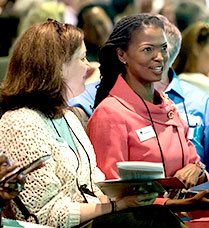Multiple-choice questions get a bad rap, and it is easy to see why. Most do not assess higher-order thinking—you either know the answer or you don’t. And if you do know the correct choice, it does not reveal depth of knowledge. So how can we construct them to better assess learning?
Six Guidelines for Making the Most of Your Multiple-Choice Questions

Related Articles
I have two loves: teaching and learning. Although I love them for different reasons, I’ve been passionate about...
In a 2023 article published in The Hill, Sarah Eaton, an associate professor of education at the University...
Educators play a pivotal role in shaping students’ academic journeys, and their impact in the classroom extends far...
There are a myriad of answers to this seemingly simple question. Grading probably comes to mind for many...
Fears of disingenuous work, fraudulent and stolen information, and theft of intellectual property have been swirling around education...
Students often struggle academically due to an inability to organize their lives around achievable goals. Students beyond early...









